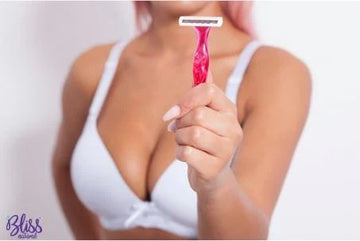Women stress so much about their body hair growth they shave their underarms, wax their legs, and pluck their eyebrows. Worrying for fur-free, smooth skin persists for women’s lifetime, along with spending lots of money, effort, and time in removing their bodily hair. But what about the thin, lengthy, and curly hair on your nipples? No, we are not talking about those flimsy hairs around your breast, but those dark and easily seen long hair precisely on your nipples. Is it a normal thing to have hair on the boobs? Or does it indicate an underlying medical condition? In most women, the hairy nipples are a normal phase of their bodily changes. But occasionally, they might indicate a problem that needs your health practitioner’s attention.
Causes of Hairy Nipples in Women
There are several underlying causes of hair growth in the nipples. Most of them are very common, while some are upsetting.
Fluctuation of Hormones
Puberty triggers hormonal changes that support the transition of a child to a woman, including breast development and growth of hair in the parts like underarms, vagina, face, and umbilical cord area is part and parcel of that period. Similarly, it is natural for some women to have hair on their nipples and the area around their breasts. If you are a carrying mother and notice new or abnormal hair growth in the areolas, it is again due to the hormone fluctuations caused by the pregnancy. The hair growth may reduce or disappear once the baby is born.
Menopause is another stage during which women experience a fall in the levels of the female hormone estrogen. During this time, many women experience new hair growth on their faces and chest areas, including the nipples. Very subtle hormonal imbalances can occur in a woman’s body during her 30s and 40s, which can change the appearance of the hair or lead to new growth.
Excess Production of Male Hormones
In some women, androgens (male hormones) such as testosterone are produced at a high level, which causes hair growth in uncertain places like nipples. When there is too much testosterone and not enough estrogen hormone to balance it out, she might have hair on her boobs. A simple testosterone test by your doctor can confirm this condition.
The other symptoms caused by the male hormones are
-
Abnormal periods or absence of periods (amenorrhea)
-
Overgrowth of skeletal muscle mass
-
Acne and oily skin
-
Hair loss on your head leads to baldness
Certain Medications
Some medications like contraceptive pills, glucocorticoid steroids, and some immunosuppressants cause unusual hair growth on the areolas as a side effect.
PCOS and Nipple Hair
One of the main symptoms of Polycystic Ovary Syndrome (PCOS) is excess and unusual hair growth in unusual places (hirsutism). The wiry hairs on your nipple might be a signal for some serious condition if you also experience the following symptoms:
-
Ovarian cysts
-
Mood swings
-
Inability in conceiving
-
Irregular menstrual cycle
-
Mental health disorders
-
Obesity
Cushing’s Syndrome and Nipple Hair
Another worrying cause of hairy nipples is Cushing’s Syndrome. This condition is characterized by surplus cortisol in the body due to prolonged intake of glucocorticoid steroids or tumors in the lungs, brain, or adrenal glands.
Cushing’s Syndrome is a rare disorder, and its symptoms are similar to those of PCOS, like
-
Excess hair growth
-
High blood pressure
-
Big stretch marks
-
Easy bruising
-
A build-up of fat in some areas of the body like the chest, tummy, back of the neck, and shoulders
-
Red and puffy face
Should You Visit a Doctor for the Hairy Nipples?
In most women, the presence of nipple hairs is regular and does not require a visit to your doctor. But if you are experiencing sudden hair growth in the nipples and some unusual symptoms like abnormal or absence of a menstrual cycle, weight gain, or mood swings, you should see the doctor. They can determine whether it could be an indication of some underlying medical issues like PCOS or Cushing’s Syndrome.
In addition, your doctor may offer advice on safe ways to remove unwanted hair without the risk of infections or other complications.
Conclusion
In conclusion, having hair on the nipples is completely normal and is often influenced by genetics, hormonal changes, or medical conditions like PCOS. Both men and women can experience this, though it is more common in men. Hormonal fluctuations during puberty, pregnancy, or menopause can also lead to the growth of nipple hair. In most cases, it is harmless and does not require treatment unless accompanied by other concerning symptoms. For those who prefer to remove nipple hair, safe methods like trimming or tweezing can be used. However, if excessive hair growth is sudden or bothersome, consulting a healthcare provider can help rule out underlying conditions.





